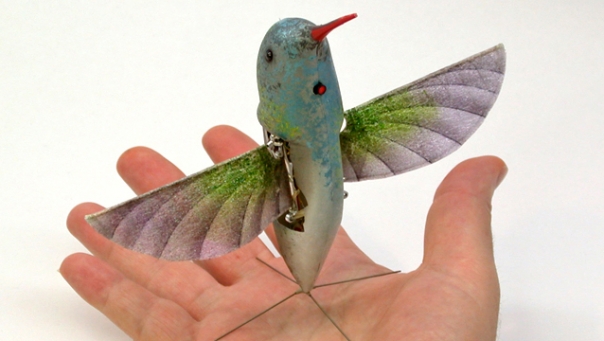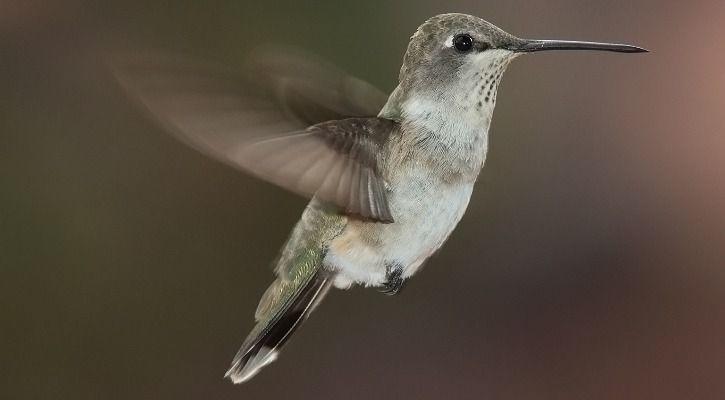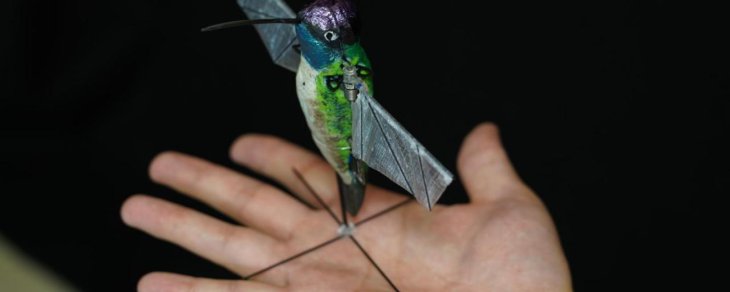AI-Supported Drones Can Fly Like A Hummingbird
Indira Datta - May 22, 2019

Hummingbird is an extremely interesting creature. Their wings can flap 80 times per second. So scientists want their drones to fly like them
- Hundreds Of Drones Crashed Into Building During Performance
- This AI Defense System Forces Drones To Land Autonomously
- IIT Kharagpur Develops Drones To Bring 5G To Zero Network Area
Hummingbird is an extremely interesting creature in nature as they can flap their wings 80 times in a second. This makes it possible for them to stay aloft in the air like a helicopter. Besides, they can quickly change to any direction while flying; hummingbirds can even move backward while some birds cannot.

The fantastic flying ability of a hummingbird is what makes scientists want their drones to fly like them.
This robot is equipped with artificial intelligence to learn how to fly like hummingbird through the simulation movement. This special drone was conceptually developed by scientists at Purdue University. They equip their drones with wings and improve their flight and movement through the way the hummingbird's wings move.
This may sound a bit unbelievable, because it is entirely different from all the normal drones, so scientists use the unique aerodynamic properties of hummingbird species to help the drones stand still in the air.
Scientists had to spend several summers studying and analyzing hummingbird's motion. After that, they turned it into algorithms. The robot's body is 3D printed from carbon fiber and weighs 12 grams. They cut membranes by lasers to make wings. Moreover, scientists have a smaller version of the robot, which weighs only one gram.

The robot doesn’t have any image sensor at all. The robot touches to navigate and uses pressure sensors to identify obstacles and tracks them during travel. The team believes that this robot will be an effective support in detective, search, and rescue. It can work entirely secretly because of its smallness and flexible.
Xinyan Deng, Purdue University's assistant professor of mechanical engineering, said that although it can not see the surroundings, the robot still has the ability to simulate the map around it. This gives it an advantage when it comes to finding victims in the dark compared to many other drones with cameras.
Featured Stories

Features - Jul 01, 2025
What Are The Fastest Passenger Vehicles Ever Created?

Features - Jun 25, 2025
Japan Hydrogen Breakthrough: Scientists Crack the Clean Energy Code with...

ICT News - Jun 25, 2025
AI Intimidation Tactics: CEOs Turn Flawed Technology Into Employee Fear Machine

Review - Jun 25, 2025
Windows 11 Problems: Is Microsoft's "Best" OS Actually Getting Worse?

Features - Jun 22, 2025
Telegram Founder Pavel Durov Plans to Split $14 Billion Fortune Among 106 Children

ICT News - Jun 22, 2025
Neuralink Telepathy Chip Enables Quadriplegic Rob Greiner to Control Games with...

Features - Jun 21, 2025
This Over $100 Bottle Has Nothing But Fresh Air Inside

Features - Jun 18, 2025
Best Mobile VPN Apps for Gaming 2025: Complete Guide

Features - Jun 18, 2025
A Math Formula Tells Us How Long Everything Will Live

Features - Jun 16, 2025
Comments
Sort by Newest | Popular